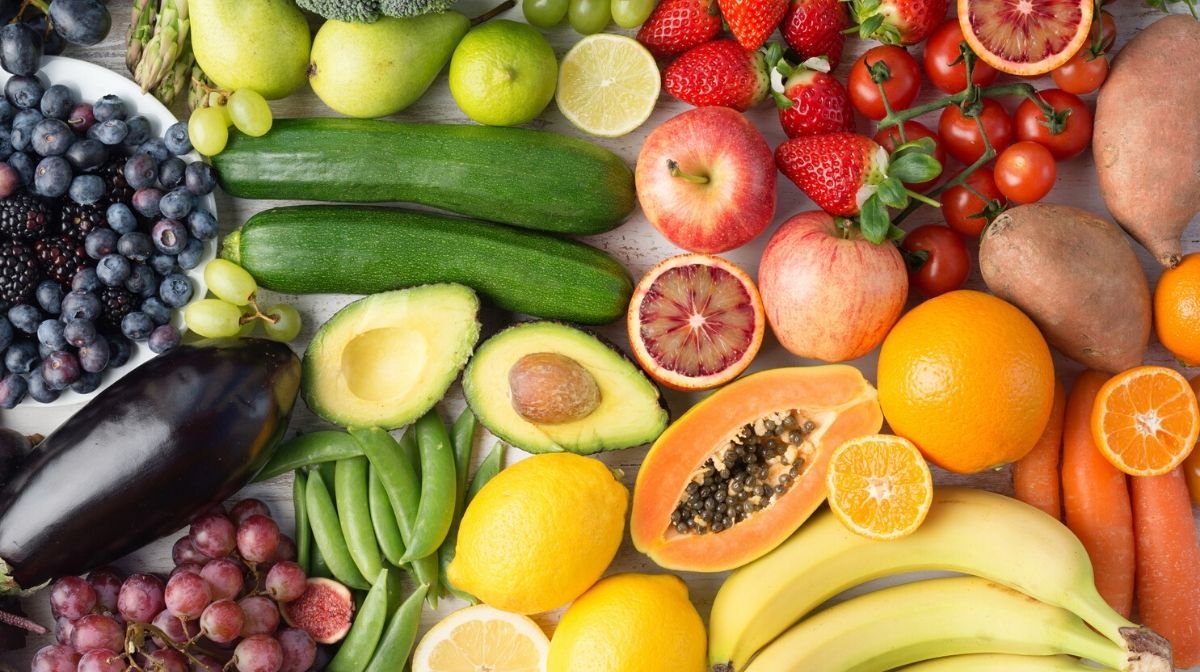The relationship between your diet and mood is a very strong one, and while many people don’t realise it, the foods you choose to put into your body don’t just benefit your physical health, but also your mental health. Putting some extra thought into your diet can be a simple way to increase your mood levels and help you to feel more positive.
On top of exercise, self-care and sleep, your diet is another factor that you can control in order to feel happier on a day-to-day basis. But what foods can actually improve our mood? Are there foods that make us feel low? It’s proven that there are certain food groups that can better your mood, while others can worsen it – but which ones and how?
What foods can have a positive impact on your mood?
Certain foods have been shown to not only boost your general mood, but also improve overall brain health. Getting enough protein, vitamins and fibre can all help to improve how you’re feeling.
Fruit
It’s widely believed that whole fruits such as berries and bananas can help you to feel happier.

Bananas are high in vitamin B6, which helps to make and produce feel-good neurotransmitters like serotonin. Bananas also contain a combination of sugar and fibre; when these two are paired together, sugar is slowly released into your bloodstream, helping your blood sugar levels to stabilise, which can lead to better mood control and prevents irritability and mood swings.
Berries are also a great mood-boosting food – they’re packed with antioxidants, which play a key role in combatting stress, depression and other mood disorders, leaving you feeling more positive.
Oats
Like bananas, oats contain a lot of fibre, which helps to slow your digestion of carbs. This allows for a more gradual release of sugar directly into the bloodstream, which keeps your energy levels stable. Oats can be eaten in a variety of ways, such as: overnight oats, oatmeal, granola and muesli and can be eaten for breakfast or as a snack, making it easy to get your daily intake of oats and fibre.
Fatty fish
Certain fish that are rich in omega-3 are another good mood food. Omega-3 fatty acids are essential fats that your body can’t produce on its own, which is why they need to be obtained through your diet. Both salmon and tuna contain certain types of omega-3s, that have been linked to lower levels of depression and play a key role in brain development, for example in cell signalling.
Dark chocolate
Not all mood-boosting foods need to be 100% healthy; dark chocolate is actually a food that can make us feel happier too. Dark chocolate has a pleasurable taste, texture and smell, which can all help to promote a good mood by themselves. On top of this, it is also high in flavonoids that can increase blood flow to the brain, boost brain health and reduce inflammation, all of which may support mood regulation. Dark chocolate is also a powerful source of antioxidants and is full of organic compounds, further helping to reduce stress levels and increase your mood levels.
What foods can negatively impact your mood?
Sometimes, all you want is to turn to comfort foods that you believe make you happy just because you enjoy the taste. However, it’s well-known that foods high in calories and sugars can come with negative consequences of their own.
Caffeine
When we drink caffeine, our bodies’ energy levels increase, and we feel more alert and awake than before it was consumed. While this isn’t a bad thing, when this spike crashes, it will often cause your body to feel exhausted along with low energy levels, both mentally and physically. Most things in moderation aren’t too bad for us, but too much caffeine intake can lead to fatigue, mood swings, and feelings of depression and anxiety.
Sugary foods
Foods high in sugar, such as sweets, cake and sweetened cereals, can be linked to a drop in your mood levels. Too much sugar intake can lead to a spike in your blood sugar, which can cause fatigue and headaches, while low blood sugar levels are linked to stress and anxiety. These up-then-down blood sugar changes can ultimately have a poor effect on your mood.
Carbohydrates
Bread, rice, cereal and other foods high in carbs can have negative impacts on your mood. High intakes of unhealthy carbohydrates, such as white bread or pastries, can cause blood sugars to rise and fall rapidly, which can lead to low energy and irritability.
Other ways to boost your mood aside from diet

Exercise
Exercise is known to improve your mental health, as it can help to reduce feelings of anxiety, depression, and low mood. Physical exercise also boosts self-esteem, alongside releasing chemicals in your brain that lift your mood, such as endorphins, dopamine and serotonin.
Sleep
Getting the right amount of sleep is crucial when it comes to mood regulation. It’s recommended that an adult gets around 7 to 8 hours of sleep a night for their body and mind to fully rest. It also makes you feel that you can function better and be more productive, which overall increases positivity.
Mood-boosting supplements
Taking supplements can be a great way to naturally boost, balance and enhance your mood. Mood-enhancing supplements work by promoting positive mood, mental and physical comfort, and healthy mental and emotional balance.

